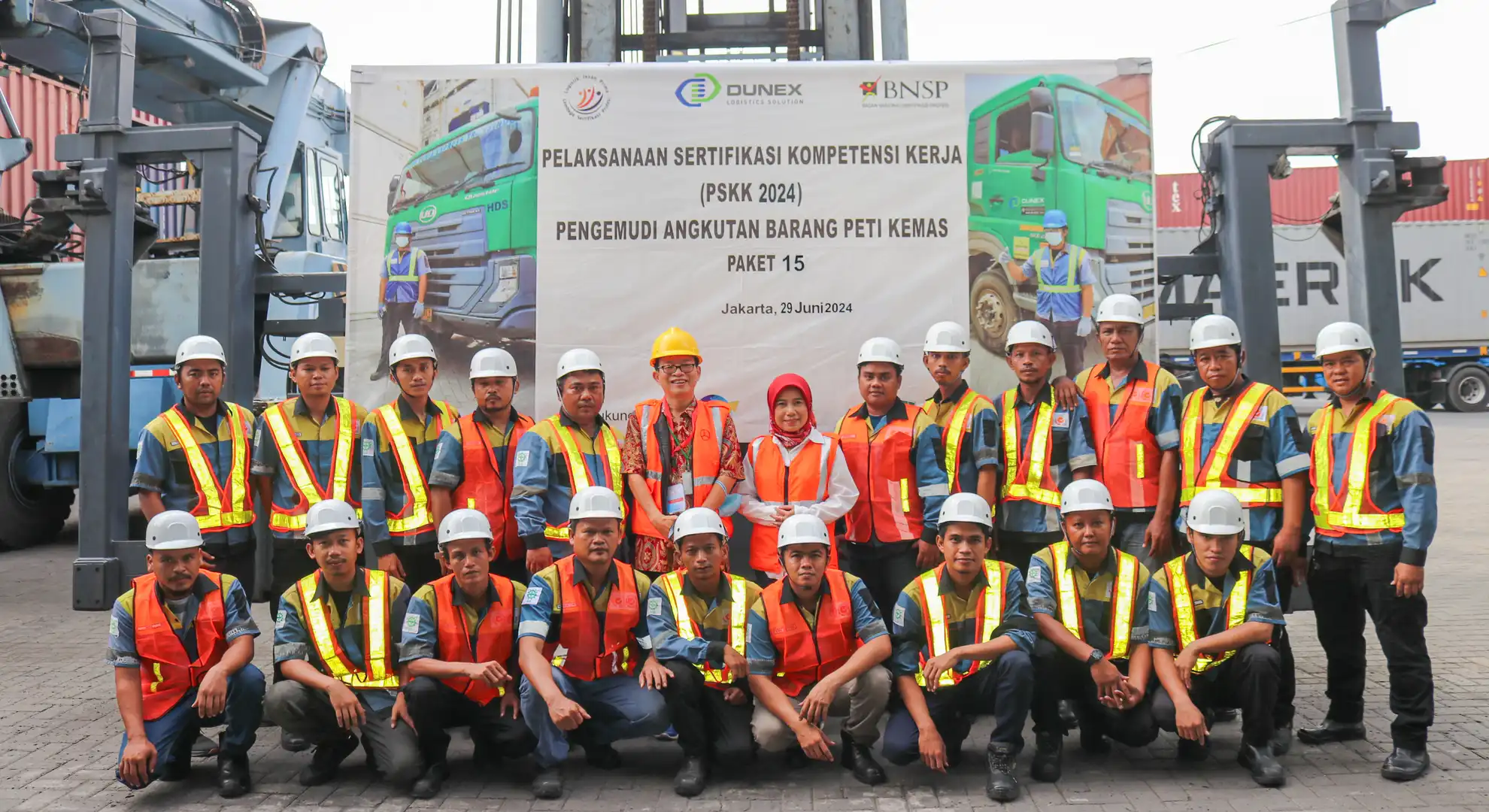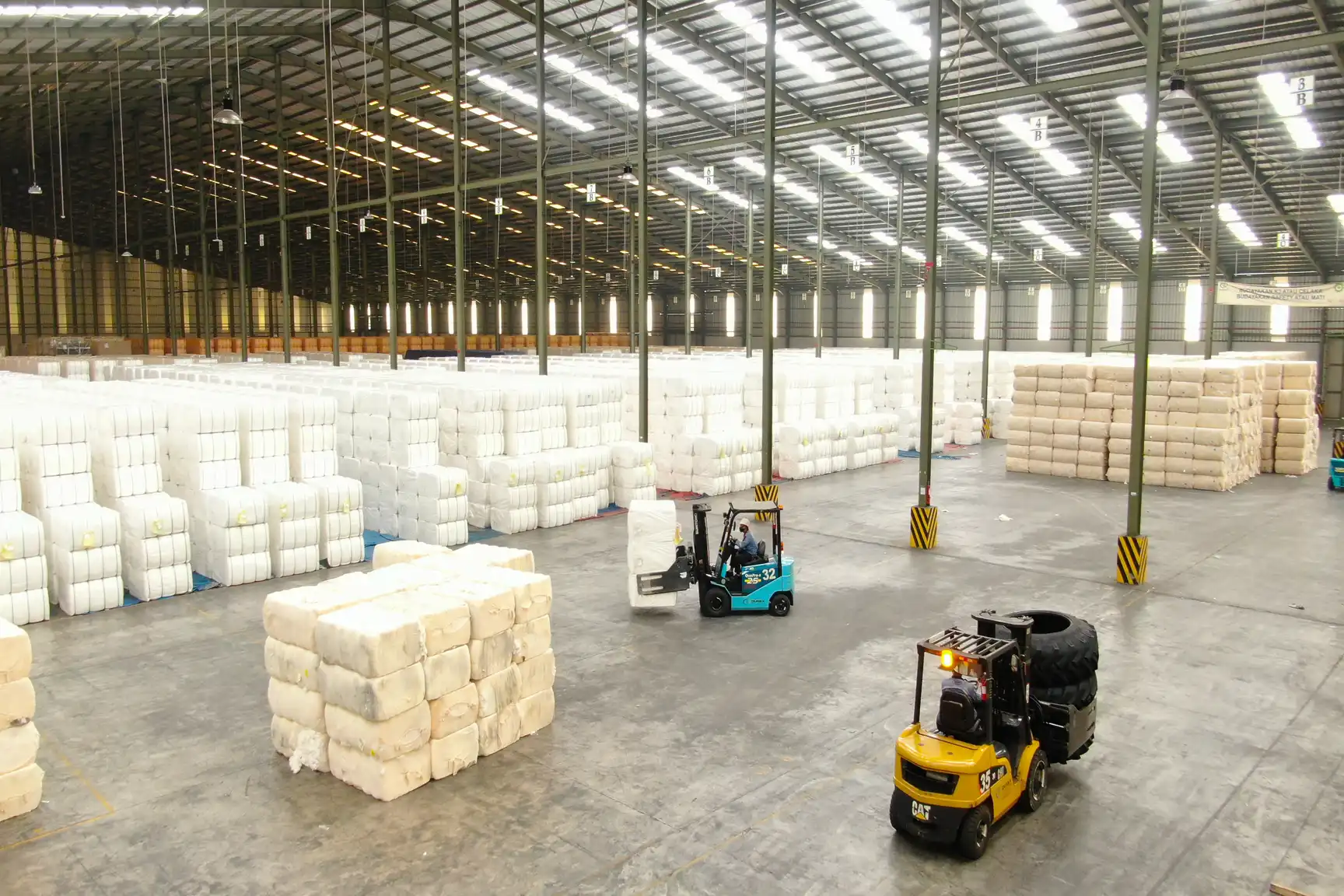Improving Human Resources Quality: DUNEX Collaborates with BNSP to Conduct Competency Tests for 20 Drivers DUNEX Sunter

 Sunter, June 29, 2024 - A total of 20 drivers have successfully undergone the certification process under the auspices of the National Professional Certification Agency (BNSP) and Logistics Insan Prima (LIP) represented by Johanes Kurniawan. This certification was conducted at
Sunter, June 29, 2024 - A total of 20 drivers have successfully undergone the certification process under the auspices of the National Professional Certification Agency (BNSP) and Logistics Insan Prima (LIP) represented by Johanes Kurniawan. This certification was conducted at  Sunter and is part of efforts to enhance the quality and safety of drivers in the logistics sector, a commitment undertaken by LIP since 2015.
Sunter and is part of efforts to enhance the quality and safety of drivers in the logistics sector, a commitment undertaken by LIP since 2015.
BNSP and LIP offer 10 certification schemes, including one for container freight transport drivers. The certification process involves several key stages, from document submission to competency testing, aiming to ensure that each driver possesses the skills, knowledge, and attitude necessary to operate safely and efficiently.
Certification Stages:
-
Document Submission: Every participant must fill out APL 01 and APL 02 documents. These documents must be completed and verified for completeness.
-
Portfolio: Participants must complete additional documents such as a general B2 driver's license, ID card, CV, and a good work history to demonstrate their qualifications and experience.
-
Practical Test: Drivers are tested on their driving skills, safety practices, and compliance with applicable requirements.
-
Interview: Competency testing also includes oral interviews to assess drivers' knowledge and attitudes.
Assessment Criteria:
-
Drivers must be at least 23 years old.
-
Must not have been involved in fatal accidents.
-
Must demonstrate good attitude, in addition to adequate experience and education.
After completing all stages of the certification process, drivers are evaluated by assessors to determine whether they are competent or not. If deemed competent, drivers receive certification acknowledging their abilities and qualifications. However, if drivers are not yet competent, they are not left without direction. Instead, they are provided with specific improvement guidance to help them meet required standards and enhance their competencies until they are ready for certification in the future.
Driver certification provides several significant benefits for the company. Firstly, certification ensures that drivers are trained and meet strict safety standards, thereby reducing the risk of accidents and enhancing operational safety for the company. Additionally, trained and certified drivers tend to be more productive and efficient in performing their duties, which in turn can improve overall company productivity. Equally important, this certification strengthens  's reputation among customers, as they feel more confident knowing that
's reputation among customers, as they feel more confident knowing that  employs only competent and high-standard drivers.
employs only competent and high-standard drivers.
Johanes Kurniawan, who also serves as an assessor, emphasizes the importance of three main aspects in competency assessment: experience, education, and attitude. According to him, all three elements must be present in every driver to be considered competent. This certification is expected to maintain positive attitudes, experiences, and education among drivers, thereby improving service quality and operational safety when performing duties at  .
.
Thus, this certification process not only adds value to  and its customers but also ensures that drivers operate at high safety standards, contributing to improved safety and efficiency in the logistics sector, particularly at
and its customers but also ensures that drivers operate at high safety standards, contributing to improved safety and efficiency in the logistics sector, particularly at  .
.



